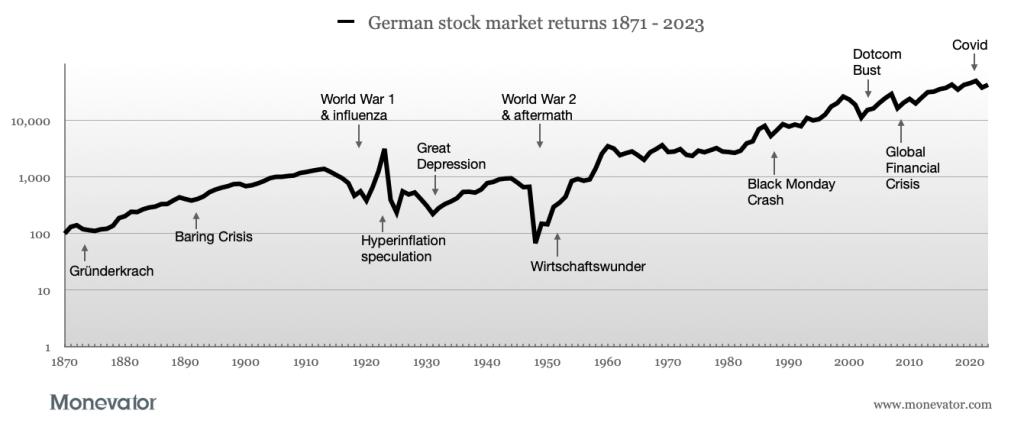
What caught my eye this week.
Last week’s inheritance tax and pension alchemy from Monevator contributor Finumus was rounded off with an excellent thread of comments from readers.
Check out the nearly 90 responses if you haven’t. There’s plenty of extra pension and inheritance tax knowledge to be gleaned from the Monevator masses. (Yes, we’re all surprised at the turns our lives have taken that means learning more about taxes and pensions is an exciting prospect. And yet here we are…)
The comment thread also includes a by-turns intriguing and befuddling discussion about what the phrase ‘middle class’ really means these days.
I don’t intend to resurrect that debate. What was frustrating about it to me though was that some people’s conception of middle-class – and for the sake of peace, I’ll concede ‘middle-class’ was a cheeky if not provocative classifier to use in the title – led to off-base missives about how Monevator was becoming the parish circular for the Downton Abbey set.
(Regarding the same article, I just now deleted a short content-less comment bemoaning that Finumus’ useful advice was cluttered up with “left-wing claptrap”. You see the challenge?)
Anyway nobody, not even Finumus (at least not in this article) was denying that – with a household income of £360,000 a year and millions of pounds of assets – the coupled that he featured weren’t minted, even by the standards of London’s gilded postcodes.
My argument will always be that I want people to know how and why people with money do what they do. We can learn something from them. (Including that they often do dumb things, like pamper their egos by investing in expensive market-lagging active funds.)
Alternatively, you could try the opposite approach of hanging around with the Socialist Worker crowd in a south London pub on a Friday night.
You’ll certainly learn something. But I’m confident it won’t be how to make, keep, and invest your money.
Knowing your place
The point is that I fully agree the couple were very well-off, of course. And while from his vantage point in a helicopter headed to the Home Counties for the weekend Finumus may move in more rarefied air, even he bemoans that most people earn so little, rather than being ignorant of it.
In fact I often find myself explaining to friends whose careers are kicking into their peak earning years that their incomes would sound magical (if not faintly criminal) to much of the populace.
Yet even I’m still mildly surprised when I’m confronted with statistics like the dissection of the latest household income figures in This Is Money this week:
Official figures show that 8.8 million people in Britain had an income above £1,000 a week in the year to March 2022 – which would equate to £52,000 a year and put them in the higher rate tax bracket.
However, the average median real-terms household income before housing costs was £565 a week in the period, equating to around £29,500 a year.
That nearly nine million people have been dragged into paying higher-rate income tax is shocking. In 1990 just 1.7 million paid the 40% tax rate. Even by the time Tony Blair was elected in 1997 it had only risen to a little over two million.
This is of course all grist to the ‘squeezed middle’ line of political thinking.
But – much more dispiriting – just look at the thin gruel down below:
Britain’s real problem
As I’ve said before in our political debates, Britain is a relatively poor country among its peers – on a per capita basis – that unfortunately thinks it’s rich enough to indulge in self-harming fantasies.
It wouldn’t be so bad if we had more affordable housing, like Germany, Spain, or (ex-Paris) France.
But our expensive property puts the boot in.
Anyway go check out all the graphs in the This Is Money article, there’s plenty to gawp at. (I couldn’t locate the original graphs from the Department of Work and Pensions website. If you have a link please pop it in the comments below).
But I must confess that it left me in a gloomy frame of mind.
One visual metaphor for wealth generation and distribution in the UK in recent years is the helicopters evacuating a few lucky thousands in the Fall of Saigon in 1975, with a handful more clinging to the landing gear and the rest falling back into a doomed mob left behind.
Maybe I should buy the Socialist Worker bloke a pint, after all?
The new competition
Okay, I’m kidding, for rhetorical effect. Been down that road 30 years ago, literally got the T-shirt.
But capitalism must do better, especially with yet another workplace revolution – instigated by AI – seemingly at our door.
On that note, I’ve included a new AI links section below. Things are moving so fast, and unlike with crypto real-world use cases already abound. Every week there’s something new to flag. Watch this space, and those links.
And have a great weekend!
From Monevator
SIPPs vs ISAs: which is the best tax shelter for your investments? – Monevator
FIRE-side chat: Fat FIRE, with family in mind – Monevator
From the archive-ator: How to run your portfolio like a hedge fund – Monevator
News
Note: Some links are Google search results – in PC/desktop view click through to read the article. Try privacy/incognito mode to avoid cookies. Consider subscribing to sites you visit a lot.
Delay on bringing forward rise in state pension age to 68 confirmed – Guardian
ONS: mortgage approvals up for first time since Mini Budget – This Is Money
Manchester’s £1 a night tourist tax comes into force – Guardian
UK is global equity markets ‘backwater’, Nick Train warns [Search result] – FT
Financial planning in an uncertain world – The Uncertainty of It All
Products and services
Shawbrook Bank’s Best Buy 4.04% fixed rate bond has unusual nine-month term – This Is Money
Apple finally launches [US] Buy Now, Pay Later service: Apple Pay Later – Apple
Pre-order Amazon’s first own-brand TVs priced at a 30% discount – Amazon
Open a SIPP with Interactive Investor and pay no SIPP fee for six months. Terms apply – Interactive Investor
Buying a car online: what to watch out for – Which
Open an account with low-cost platform InvestEngine via our link and get £25 when you invest at least £100 (T&Cs apply. Capital at risk) – InvestEngine
Where next for fee-free share dealing? Freetrade founder Adam Dodds – This Is Money
Homes for sale in or near High Streets, in pictures – Guardian
Comment and opinion
Markets make you feel bad all the time – A Wealth of Common Sense
Re-imagining index funds [Search result] – FT
10 years on, what did the Help To Buy scheme really achieve? – Guardian
Tax cliff edges: how a 1p pay raise could cost someone £20,000 – This Is Money
Memory and probability – Verdad
Why do we retire? – The Long Run
How to build generational wealth – Of Dollars and Data
A higher tax burden is upon us, and it’s mainly by stealth – David Smith
Is owning your home still cheaper in the UK than renting? – Which
When average isn’t enough – Abnormal Returns [on The Age of Average]
Highlights from a chat between Charlie Munger and Todd Combs – Neckar
Naughty corner: Active antics
The commonalities of super-investors – Investment Talk
Markel: playing the long game [Podcast] – Business Breakdowns
Traders are betting on a US commercial property credit crunch – Axios
David Einhorn on value investing [Podcast] – Invest Like The Best
Debunking the myth of market efficiency – CFA Institute
Kindle book bargains
Banking On It: How I Disrupted an Industry by Anne Boden – £0.99 on Kindle
Bank of Dave by Dave Fishwick – £0.99 on Kindle
Never Go Broke by Lee Boyce and Jesse McClure – £0.99 on Kindle
Green Living Made Easy: Hacks to Save Time and Money by Nancy Birtwhistle – £0.99 on Kindle
Environmental factors
Buy. Return. Repeat. What happens when we send back clothes? – Guardian
Government’s air passenger tax cut spurs double CO2 output vs trains – Which
300-year-old letters reveal hurricanes’ long-term rise – Hakai
What ESG news matters most the market? [Research] – CFA Institute
Robot overlord roundup
Now that ChatGPT is plugged in, things could get weird – Wired
AI chatbots making it harder to spot phishing emails – Guardian
“My kids played D&D with ChatGPT4 as the DM” – via Medium
300 million jobs could be affected by latest AI wave, says Goldman Sachs – CNN
A.I. is sucking the Internet in. Here’s a tool to extract yourself out – Slate
ChatGPT: keep talking and nobody explodes – ETF Trends
Off our beat
Are coincidences real? – Aeon
Destitute by design: trapped in the UK’s immigration system – Prospect
Why China’s population is shrinking [Video] – Vox
Mental liquidity – Morgan Housel
Life is worse for older people, post-Covid – The Atlantic via MSN
What’s the point? – Tom Morgan
Taking on the crack-up capitalists… – Prospect
…talking of which, Twitter is dying – TechCrunch
And finally…
“There’s nothing duller than hearing people talk about indescribable, deeply personal revelatory experiences, things like the LSD experience, the ayahuasca retreat, the delights of music that bores you to death, and the ineffable joys of kids.”
– Ermine, Simple Living in Somerset
Like these links? Subscribe to get them every Friday. Note this article includes affiliate links, such as from Amazon and Interactive Investor.
The post Weekend reading: The importance of being earn-iest appeared first on Monevator.



